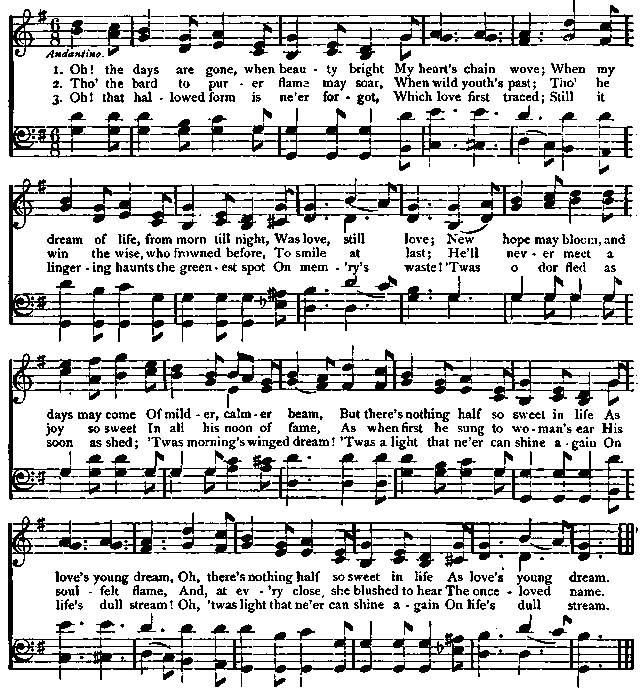Franklin Square Song Collection - online songbook
200 favorite songs and Hymns for Schools, Homes Lyrics & Sheet Music
| Share page | Visit Us On FB |
|
172 |
FRANKLIN-SQUARE SONG COLLECTION. |
||||
|
Art of SINGING.—It must have struck every intelligent frequenter of the concert-rooms to what hopeless straits an enthusiastic admirer of any particular singer is put when asked to give his reasons for appreciating the merits of his favorite. The answer, if one is given, is often couched in vague generalities, and in some cases may be said to amount to literally nothing at all. The artist has a good voice, one is told, a clear enunciation, has done some things very well or, it may be, his appearance and deportment are pleasing. Why should |
this incapacity to give a reason for liking a thing exist?' The explanation is clear enough to those who have turned their attention to the phenomenon, and lies in the fact, that an audience taken collectively knows little or nothing of the art of singing, and even were the very party who is the object of applause interrogated as to the cause of his or her success, in but few cases probably would a satisfactory explanation be forthcoming, for although he or she may have received such education in the art as is usually afforded, that |
||||
|
LOVE'S YOUNG DREAM. |
Thomas Moore. |
||||
|
|
|||||
 |
|||||
|
education does not take into account the fact that explanation may sometimes be required. There exists, indeed, no complete and intelligent system of vocal training. Pupils are not required to reason; suffice it if, after years of toil, by hook or by crook, rightly or wrongly, they acquire the power to produce certain effects. It may be pointed out as an extraordinary fact that, while singing is the most widely diffused of all arts, no art is more in its infancy with regard to the principles on which it is taught. We offer no explanation of the |
anomaly. A fine voice will go far with an uncritical audience, and there are many singers who set a higher value on the apparent satisfaction of others than on the absolute consciousness of having satisfied themselves. The interlude in the music is an echo, or a prophecy, or both combined. If it be an echo, it attempts to render in pure musical sound the dominant thought of the stanza that went before. If it be a prophecy, it sees what is coming and prepares the way for it, and brings the devotional congregation to the next stanza.. |
||||